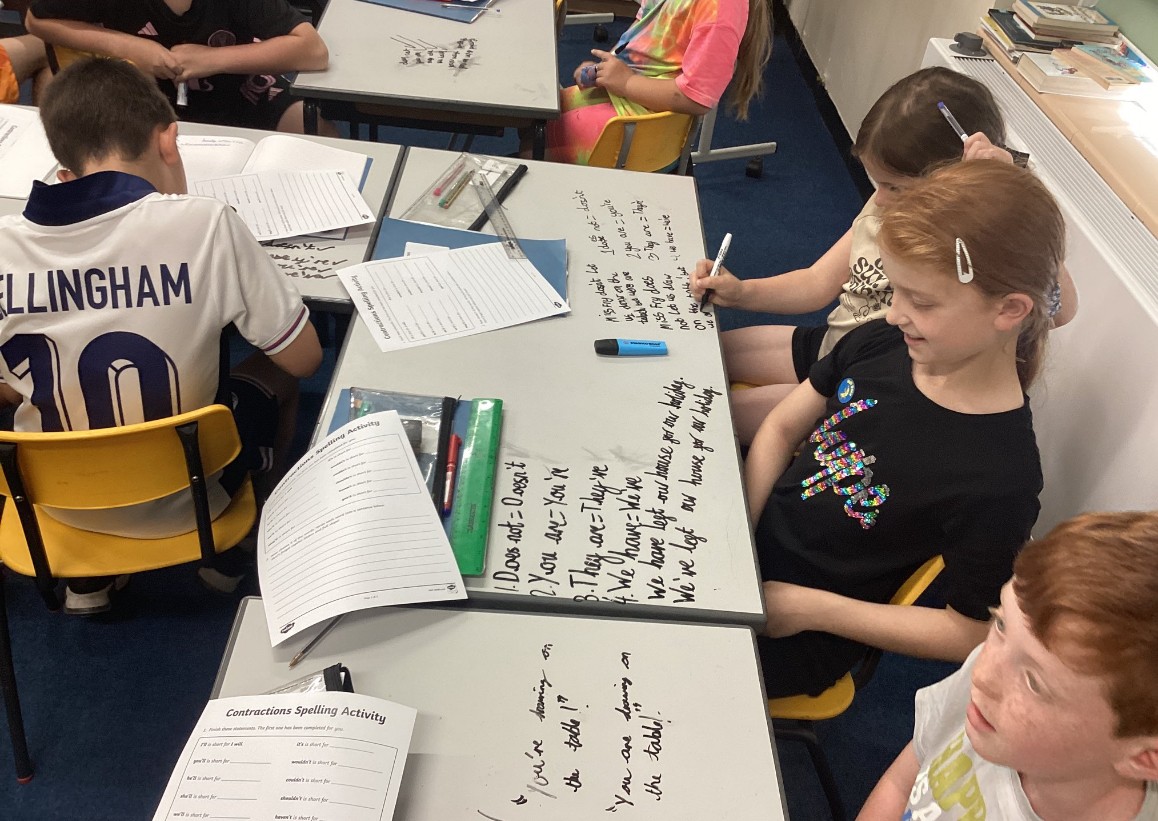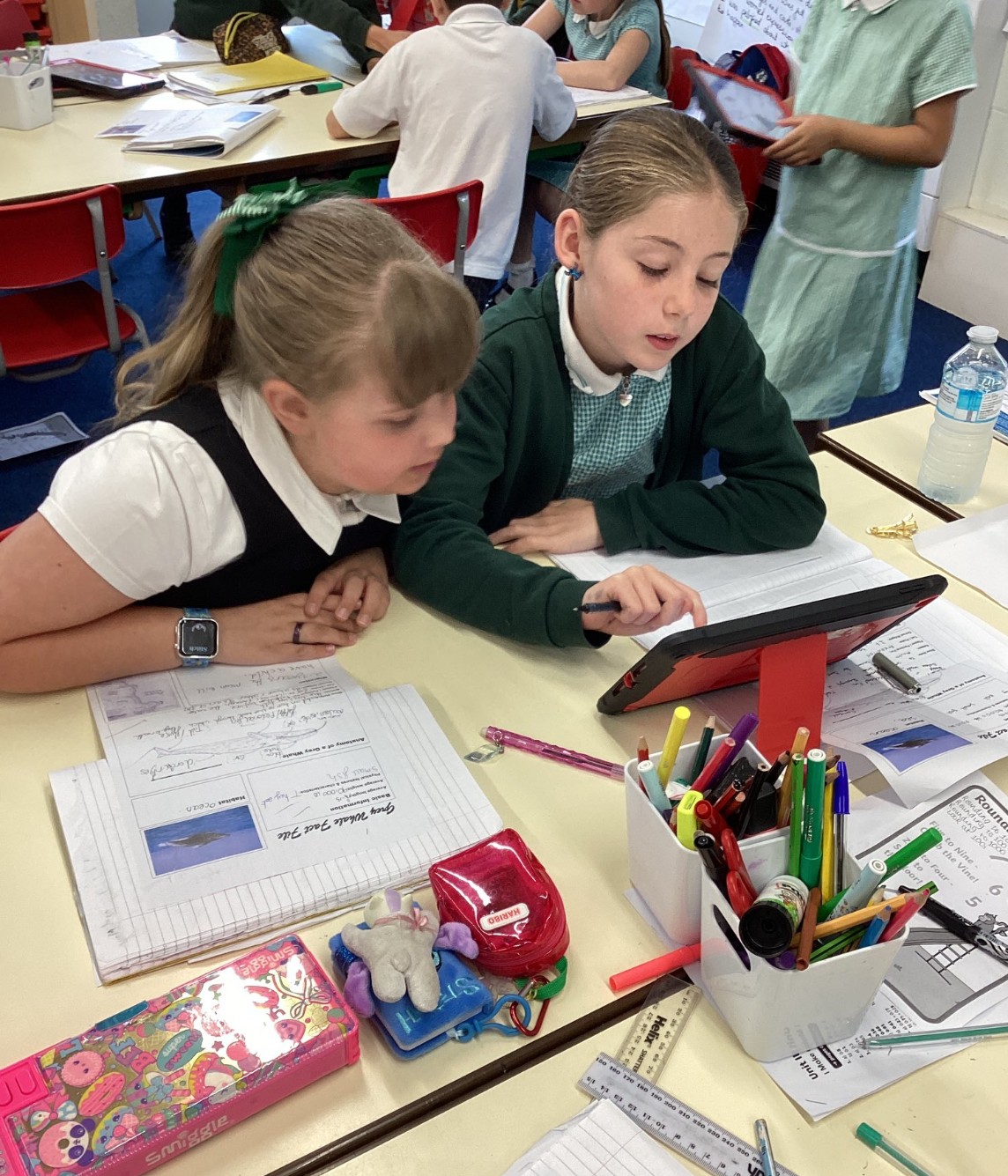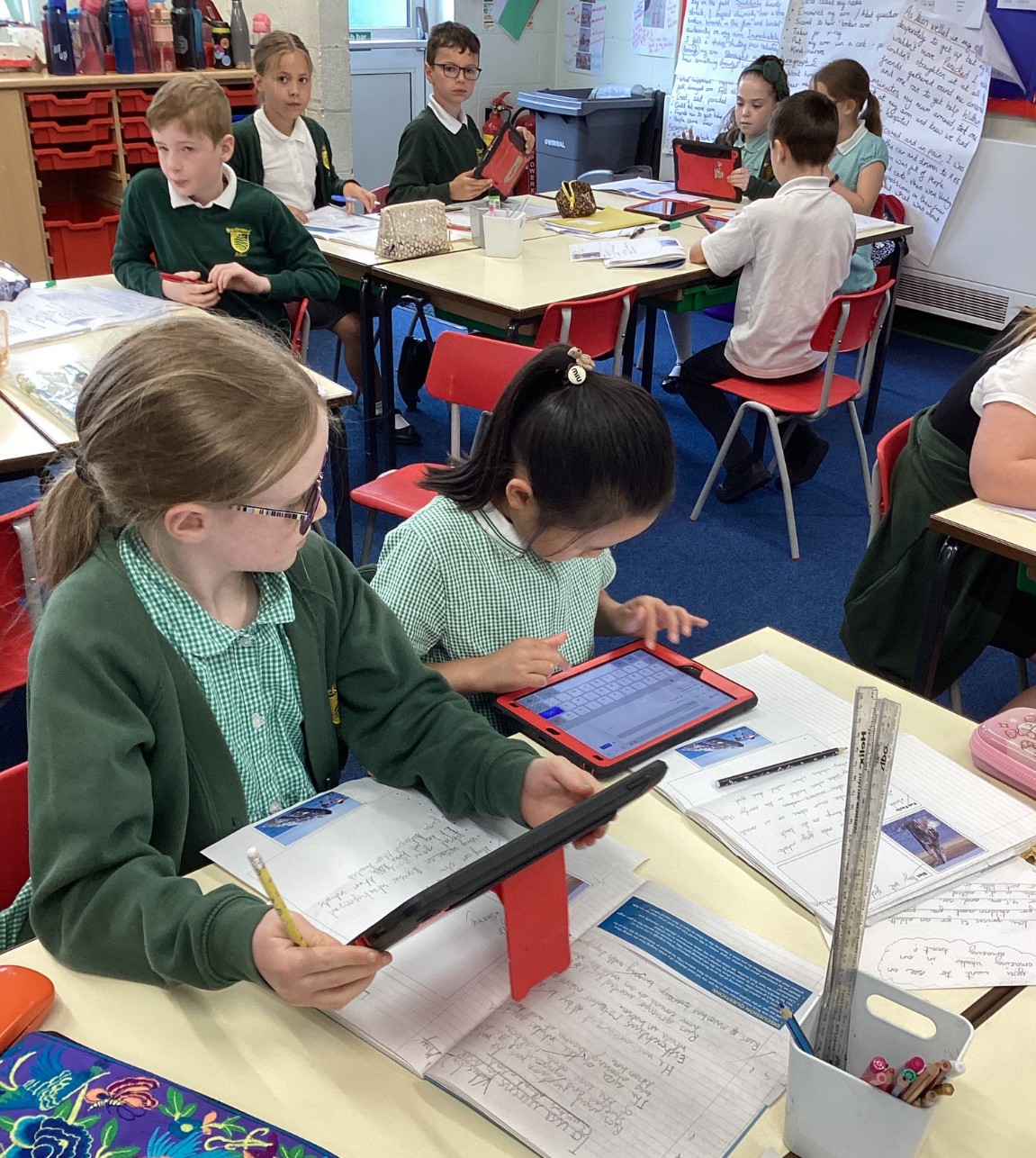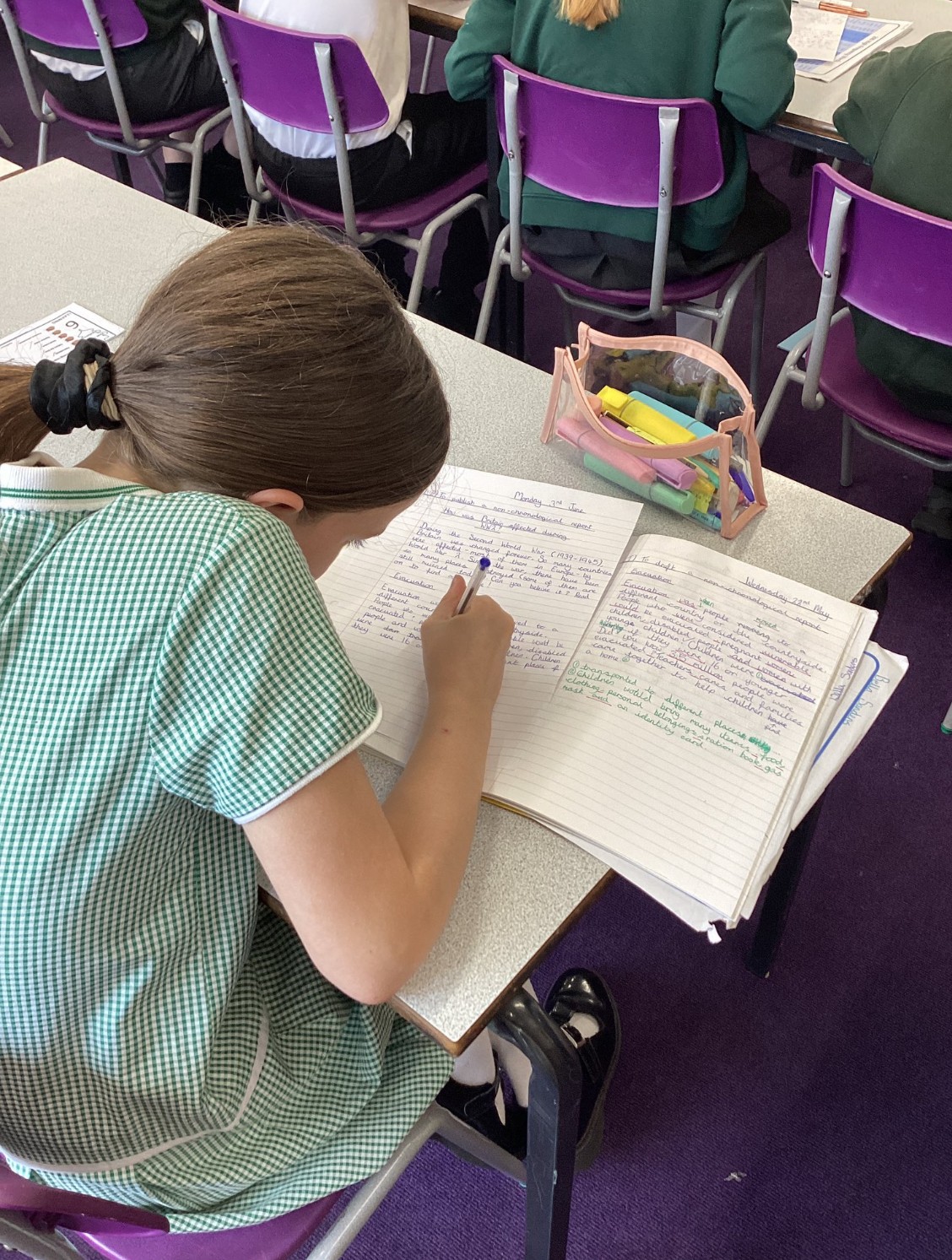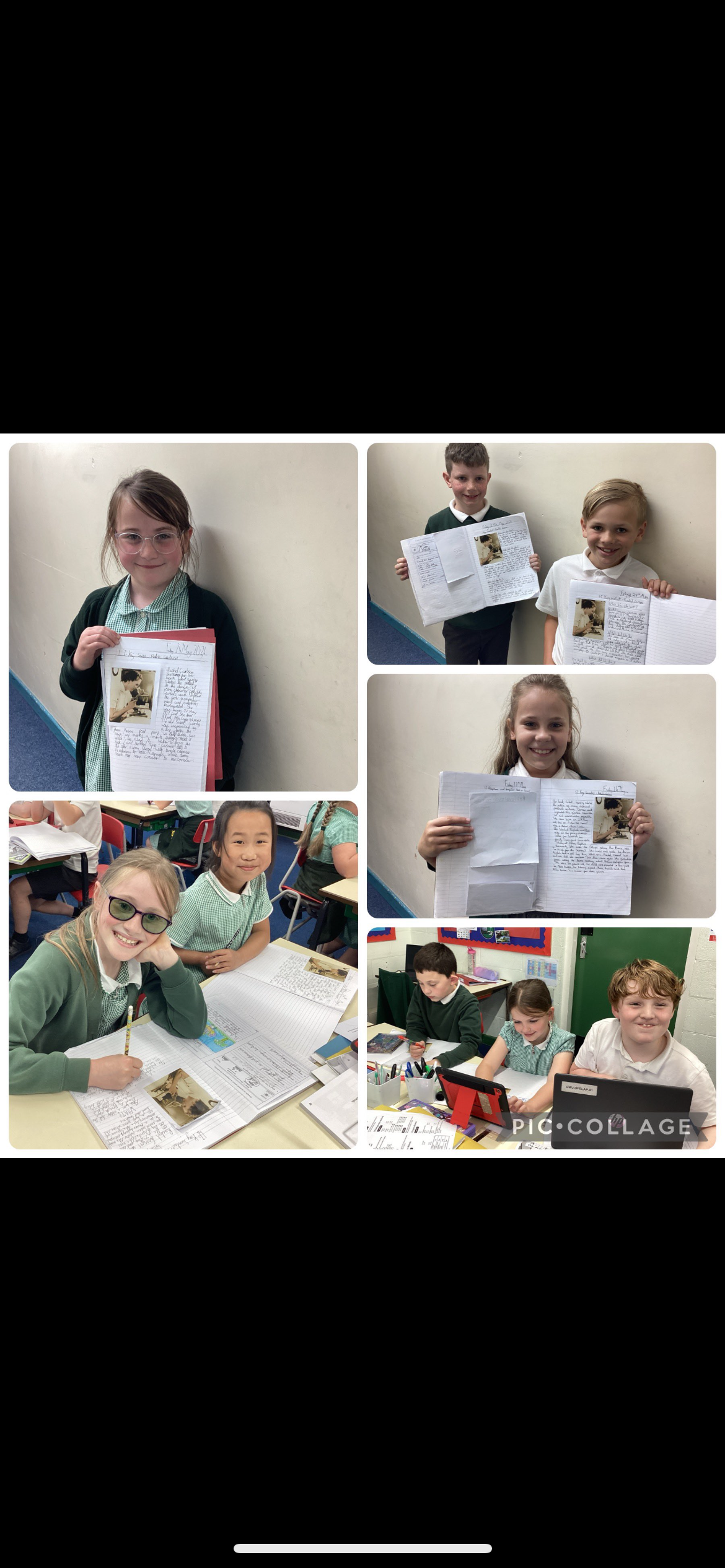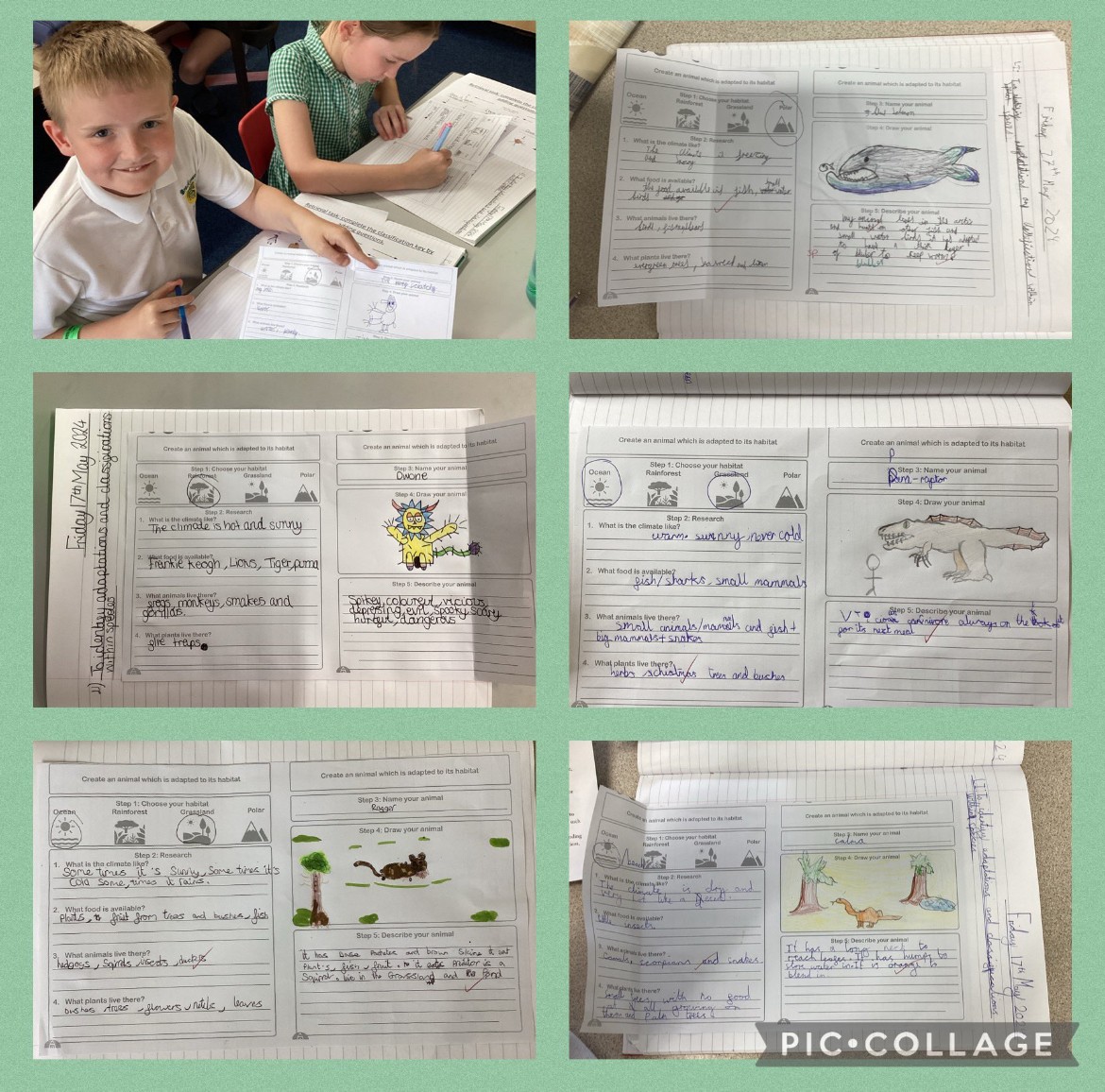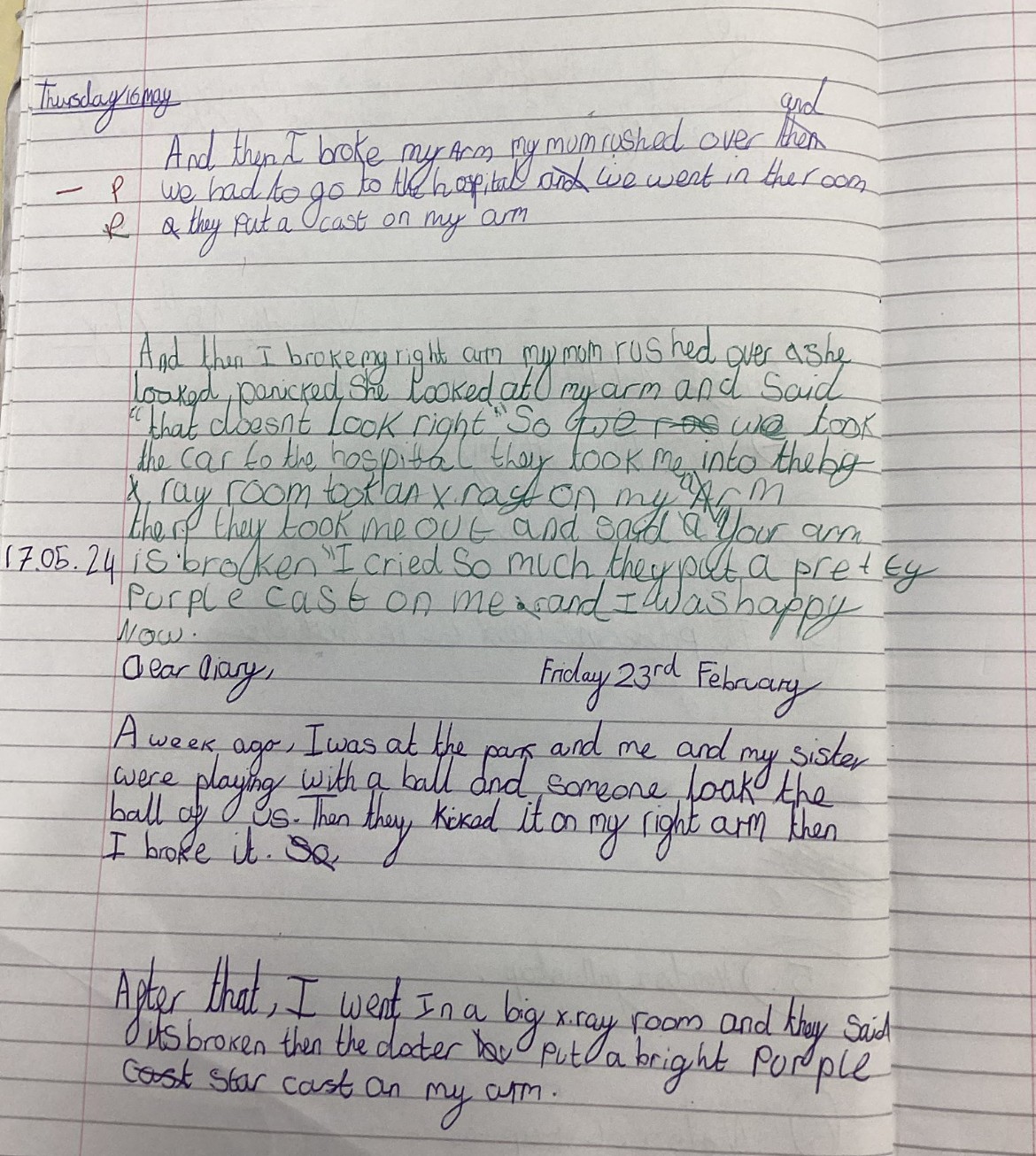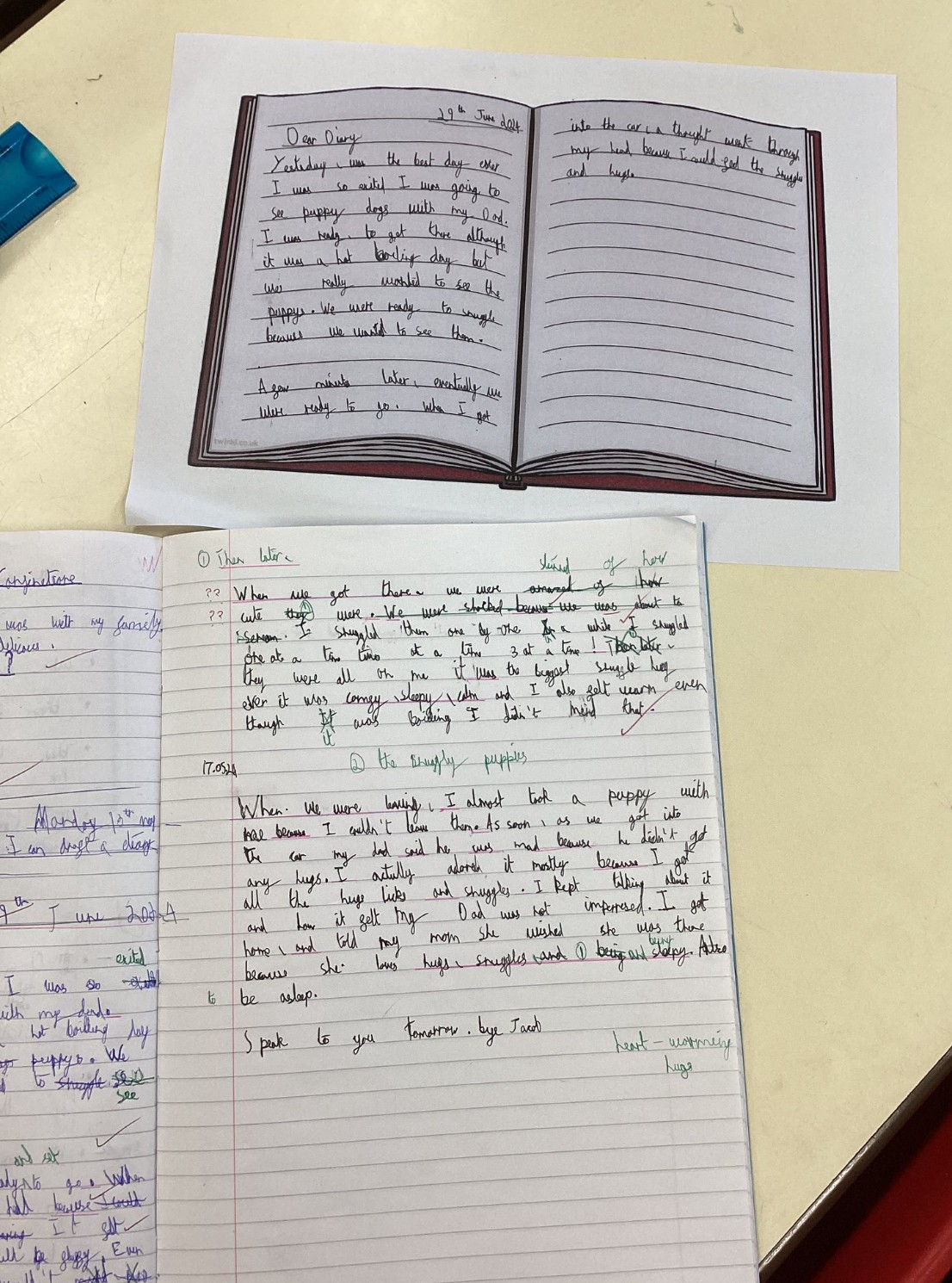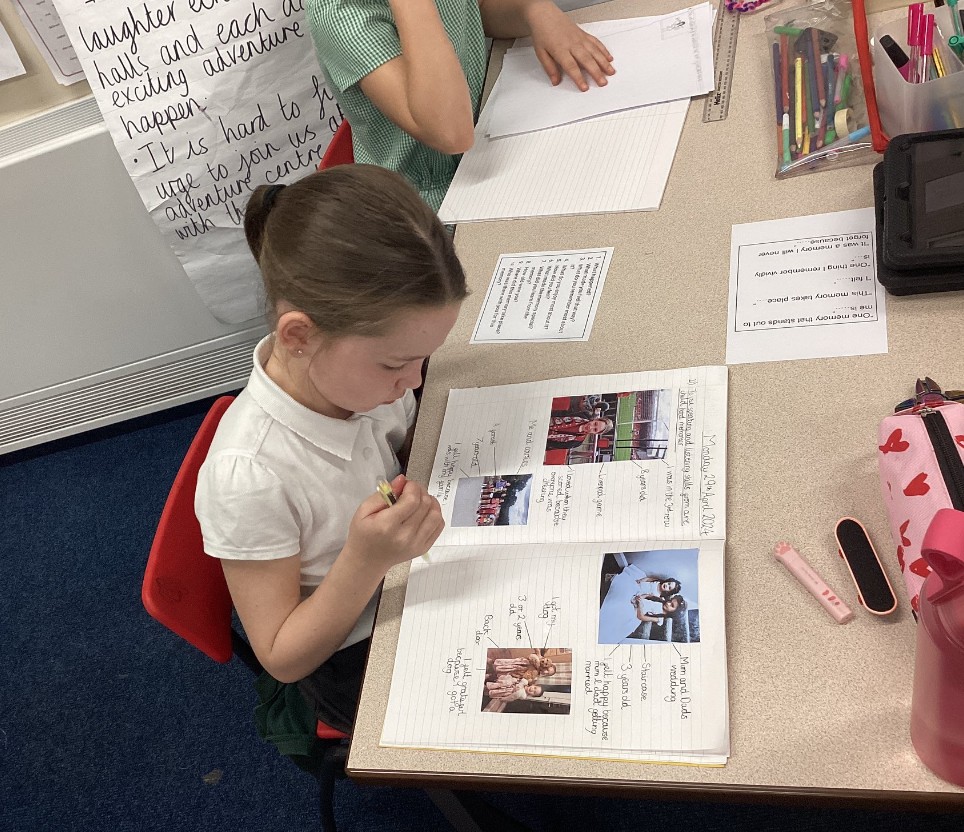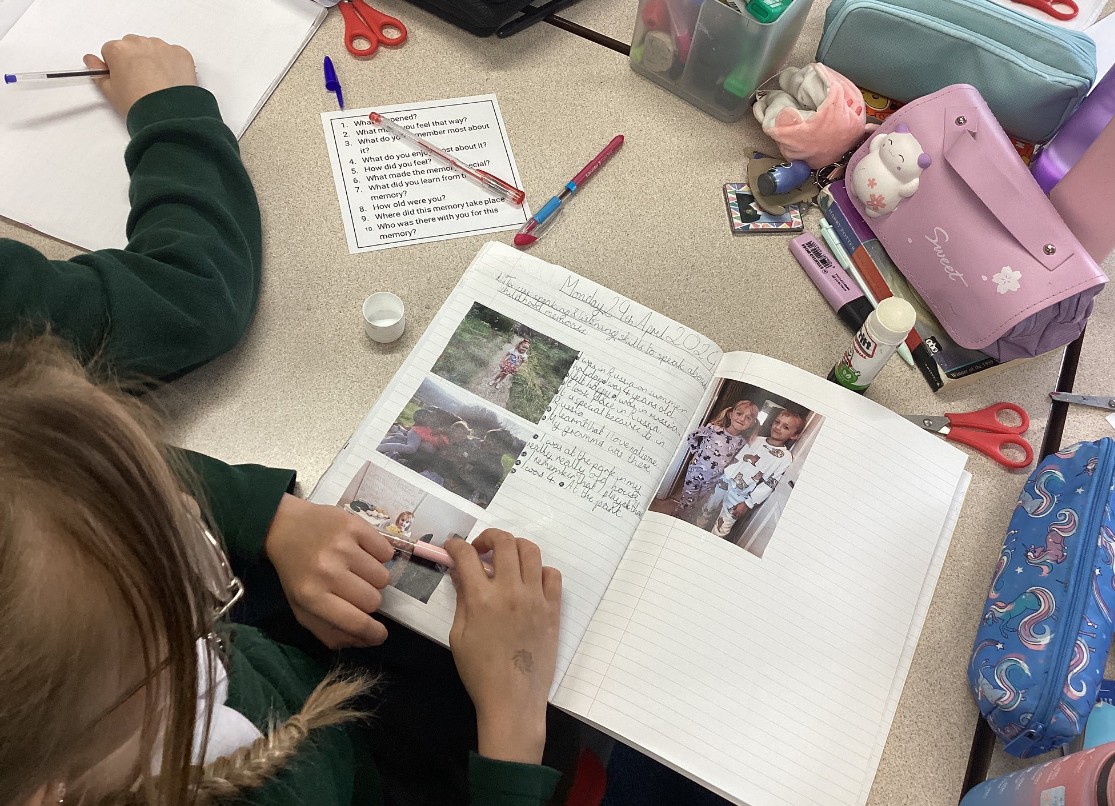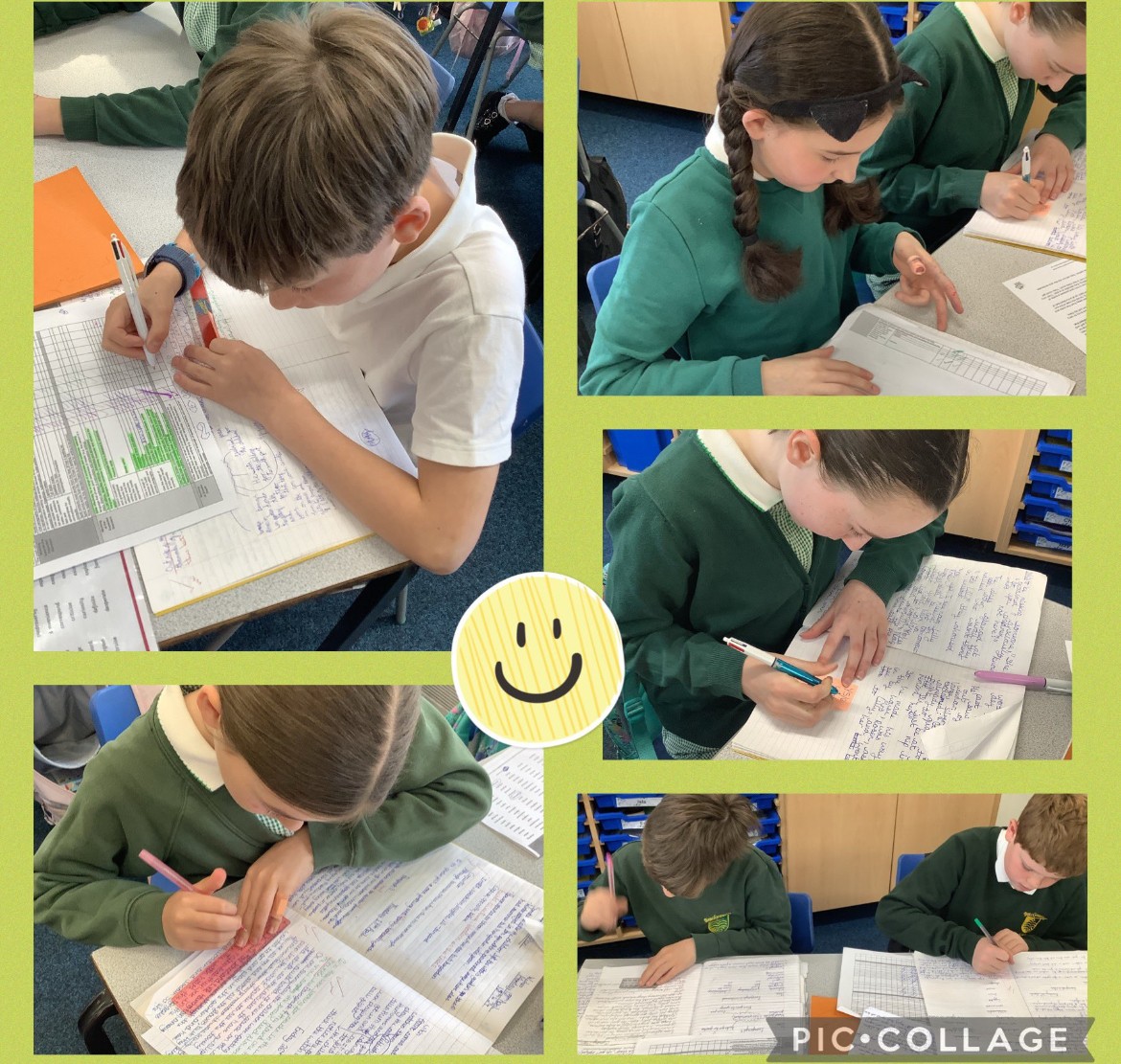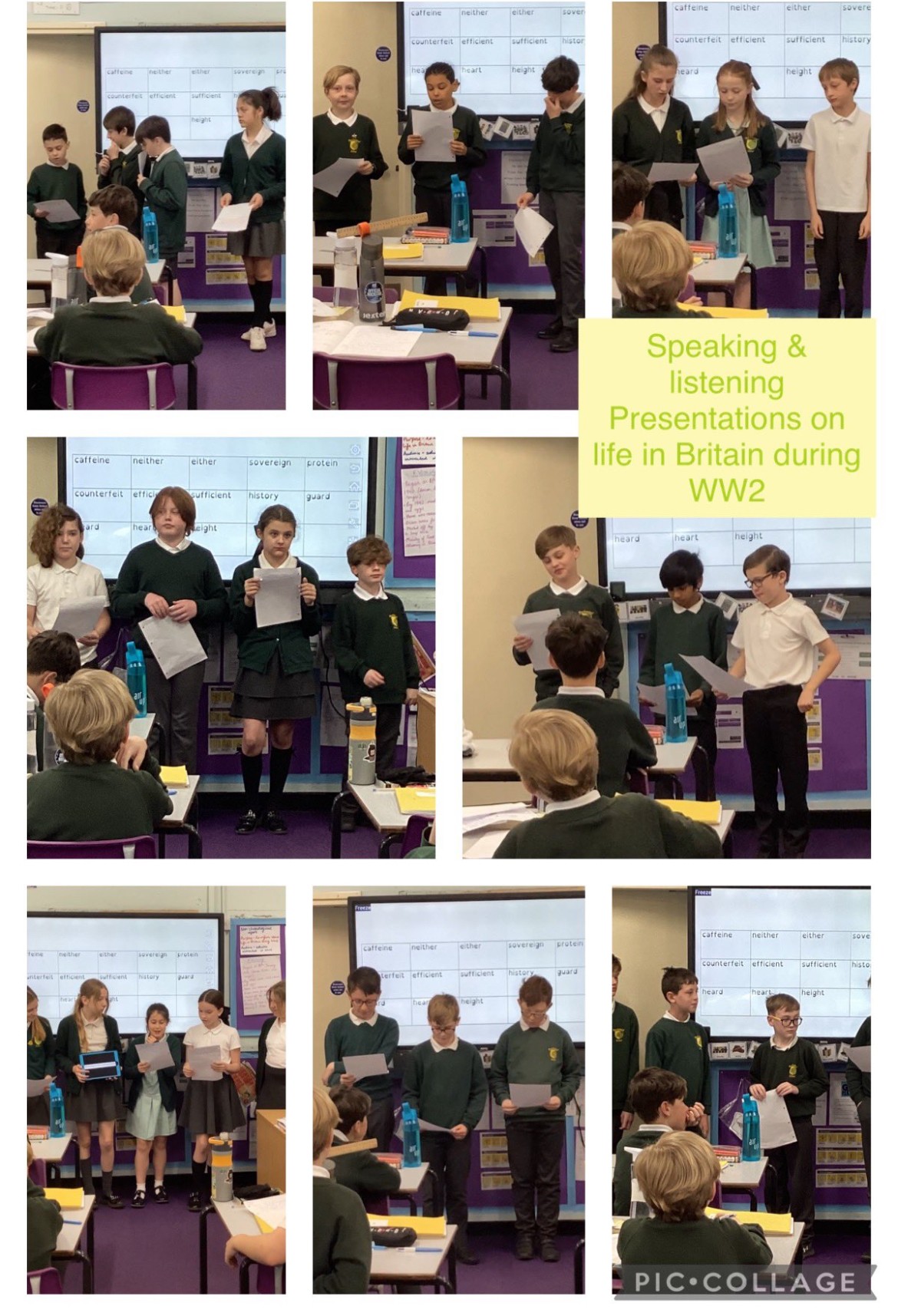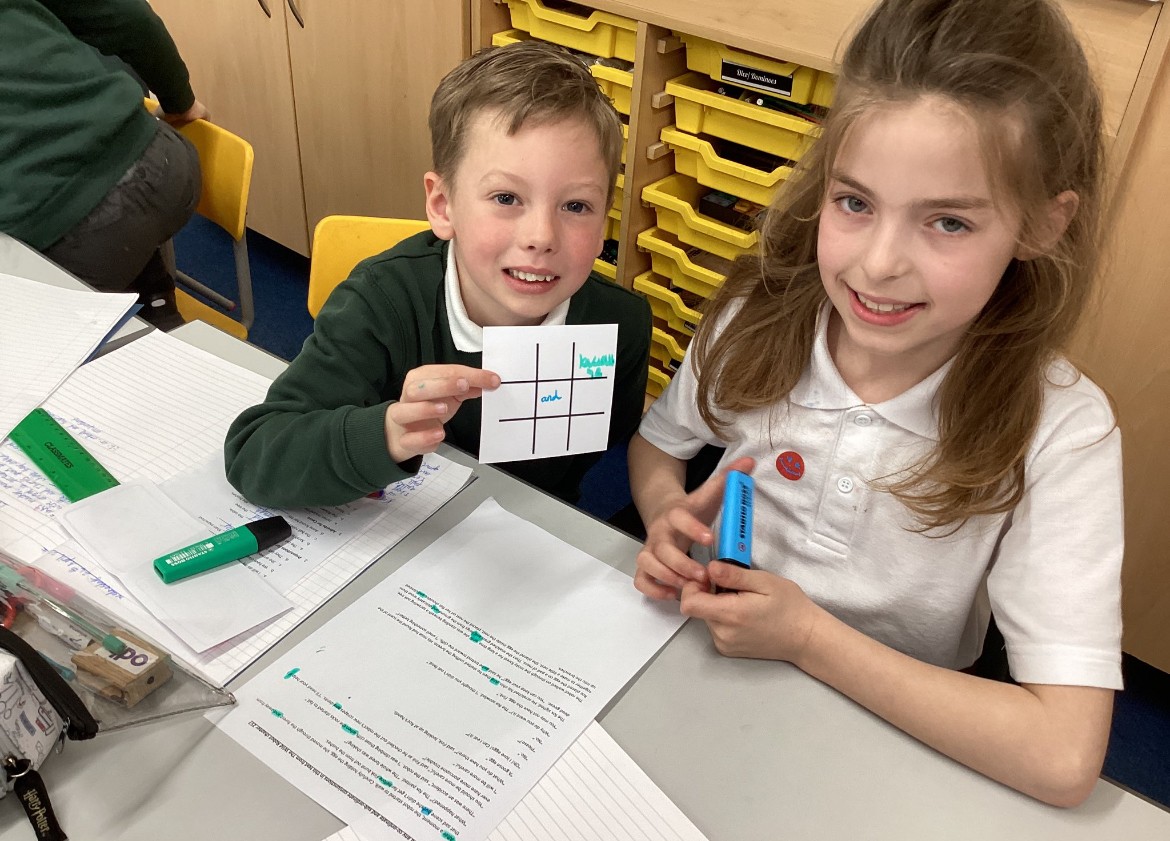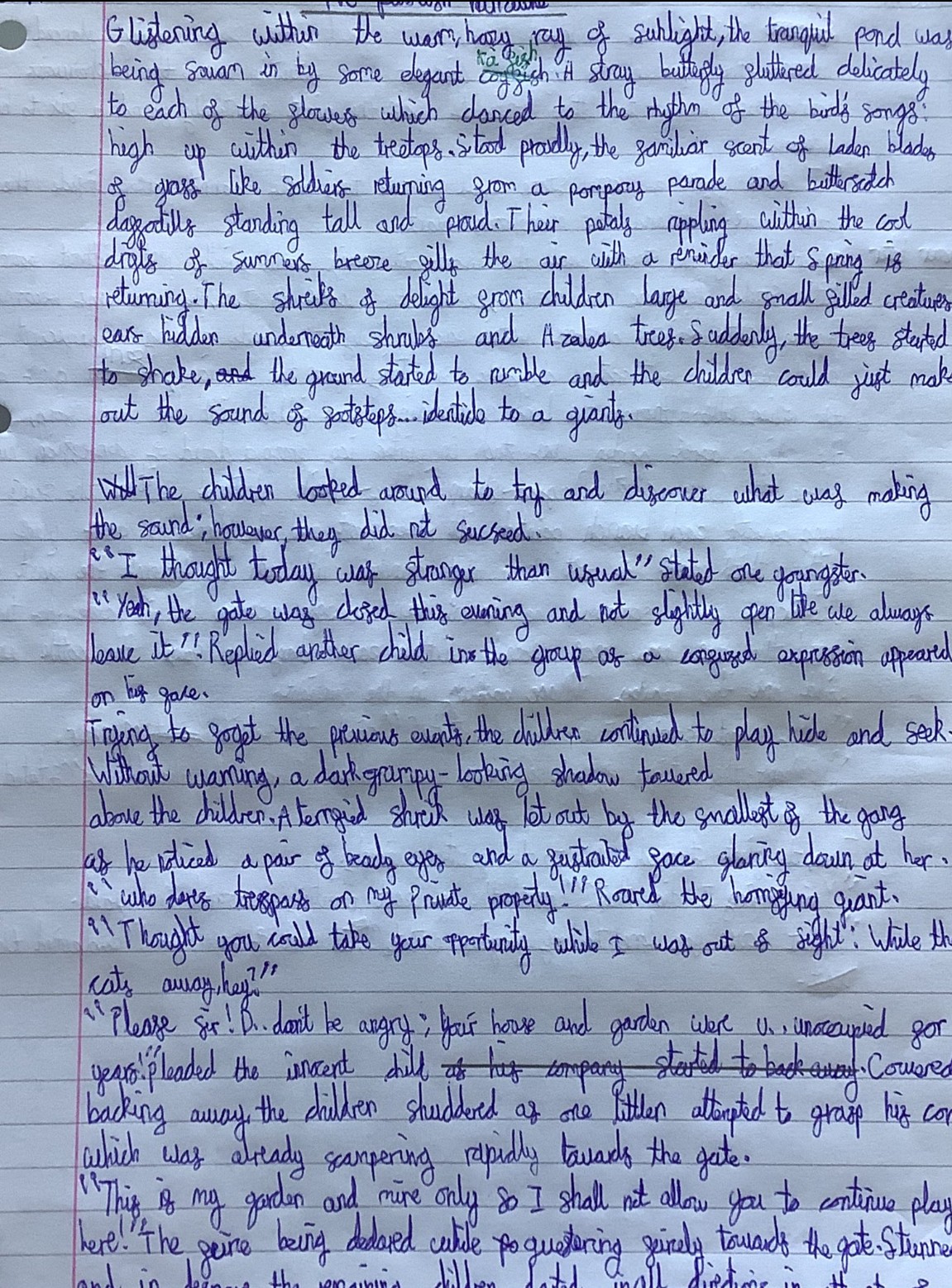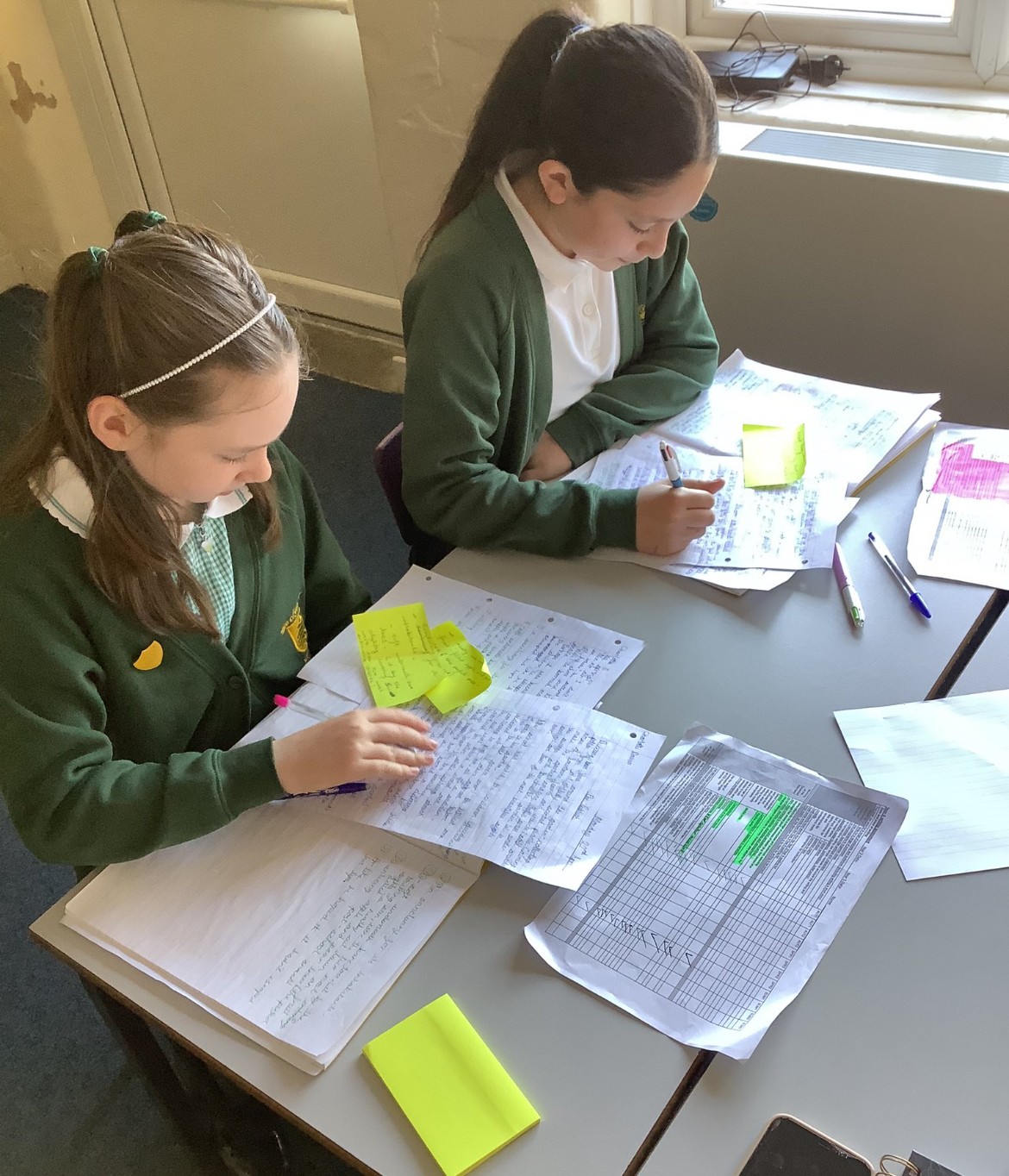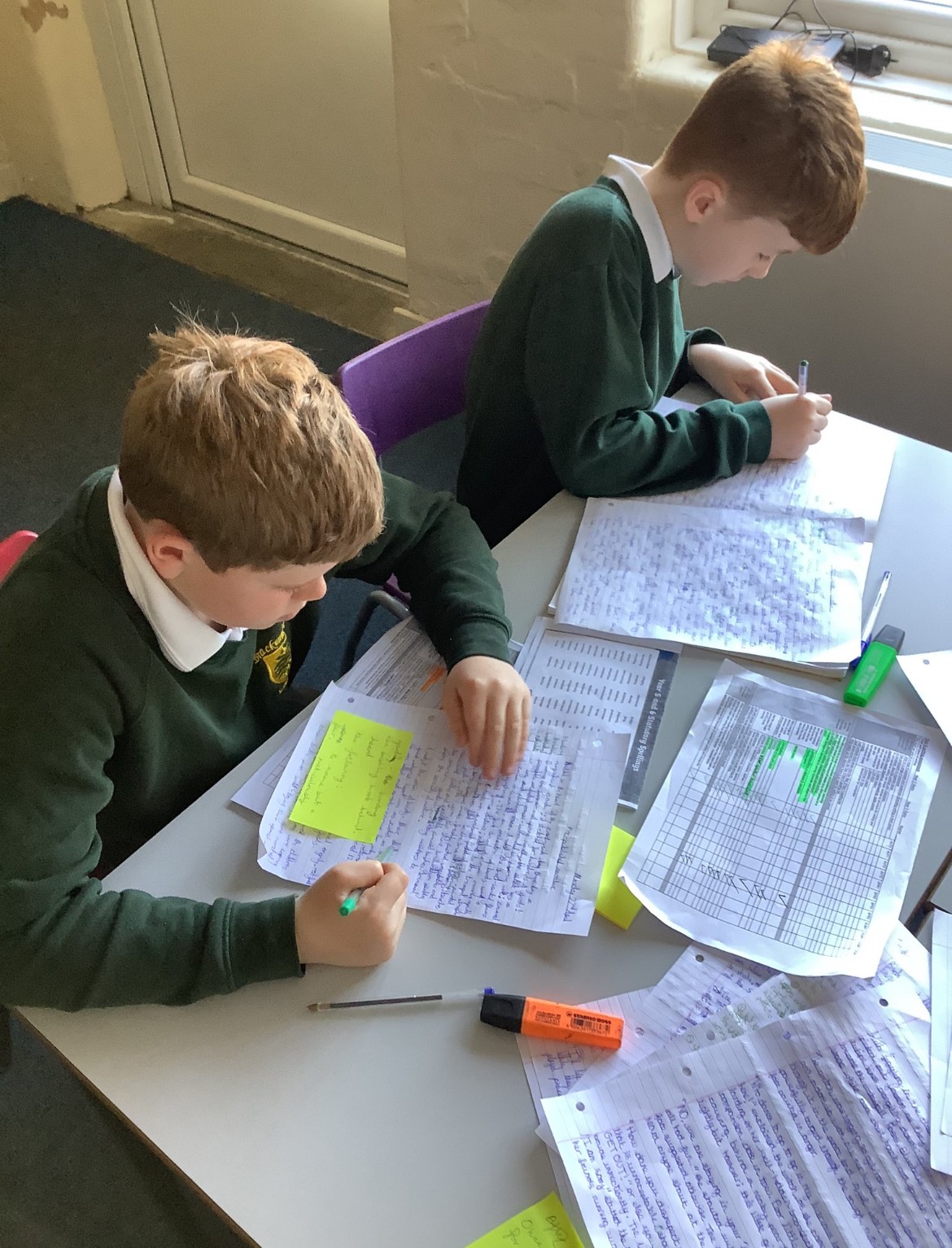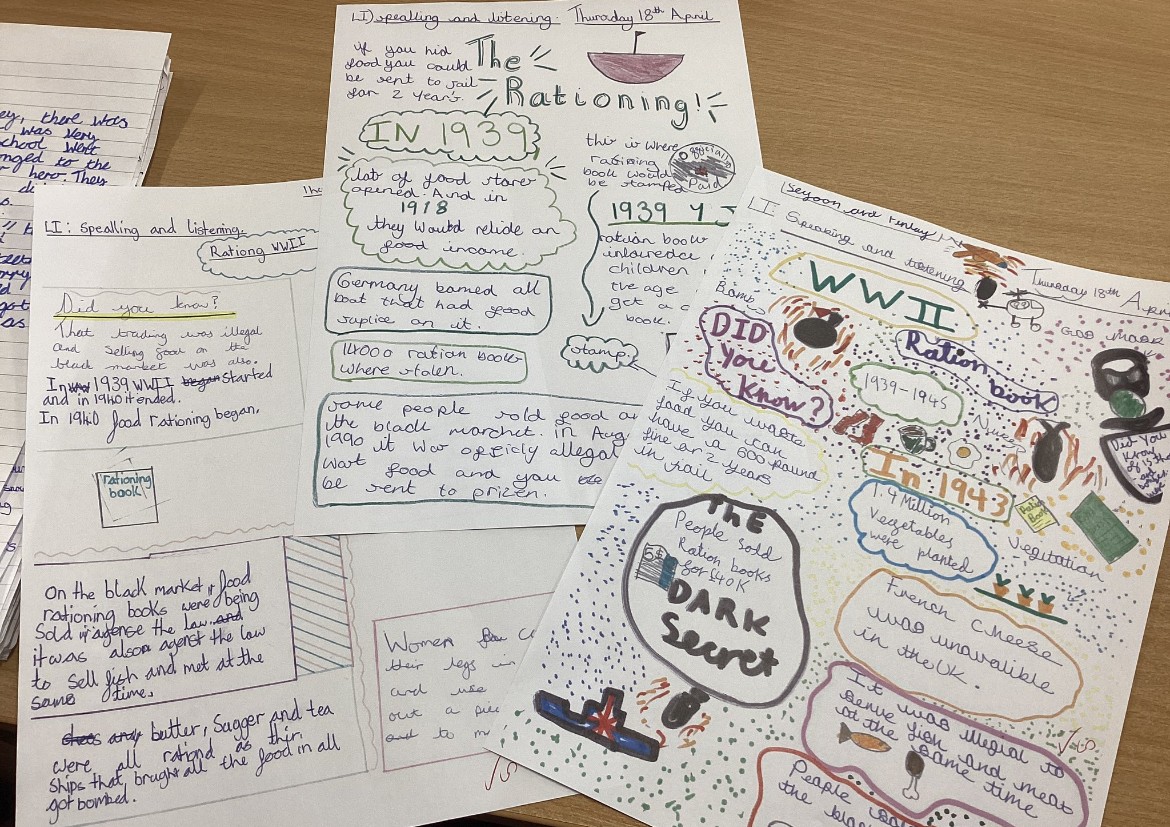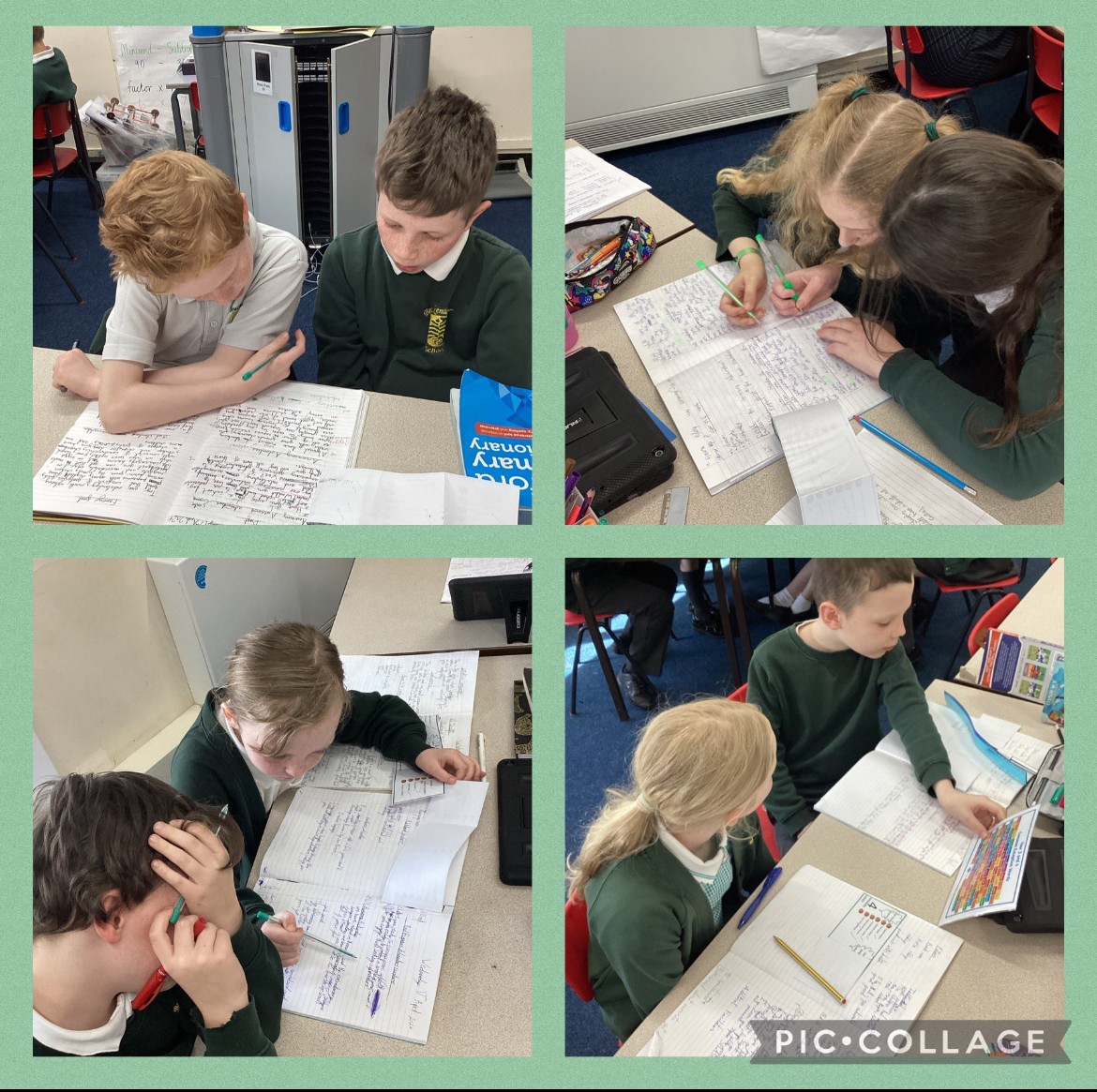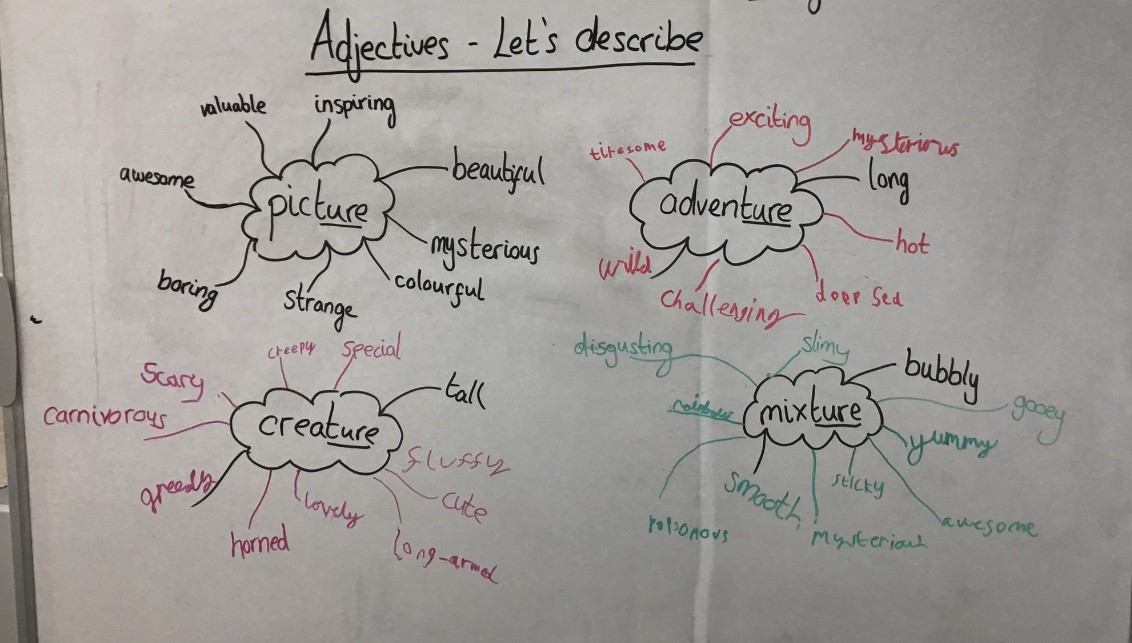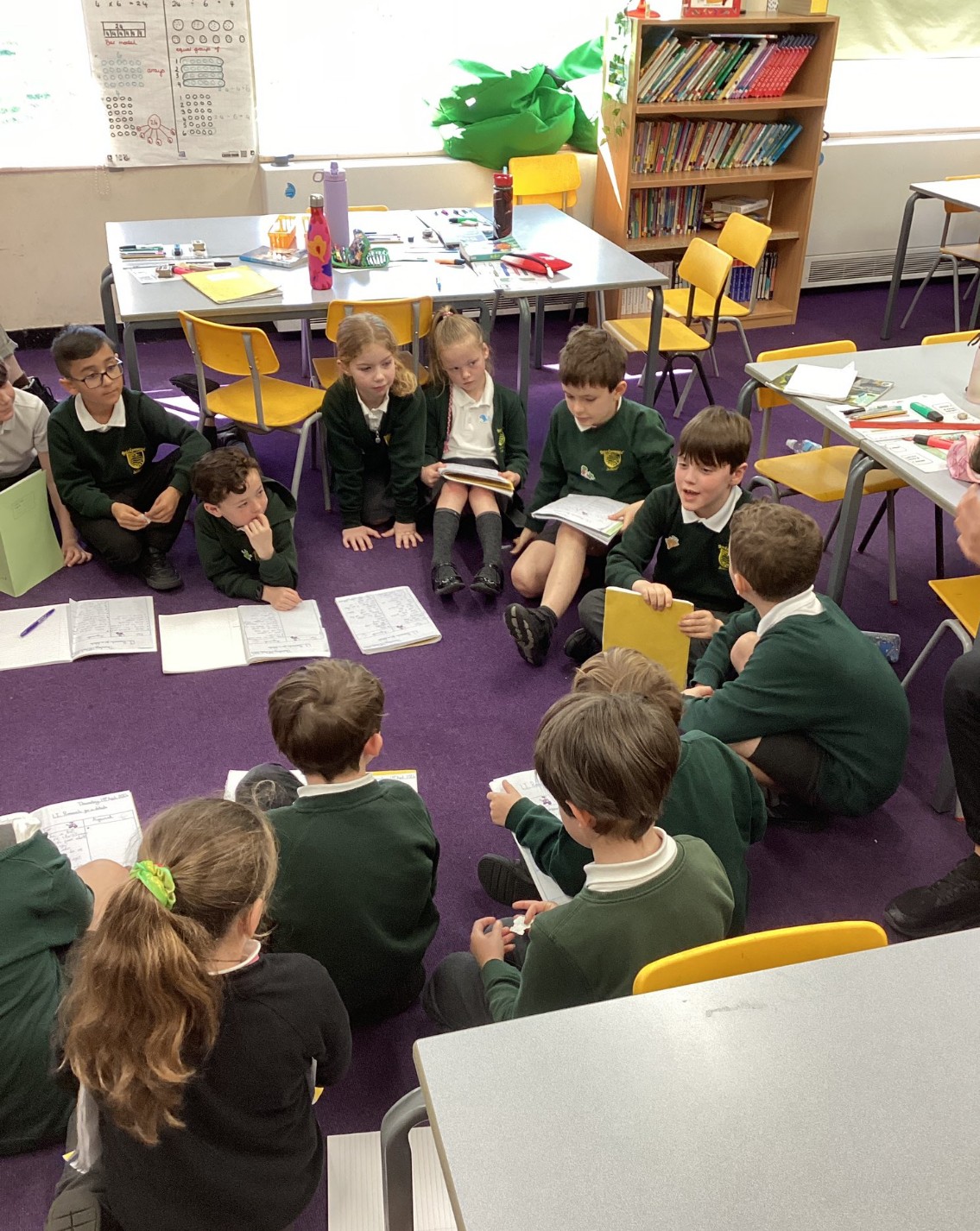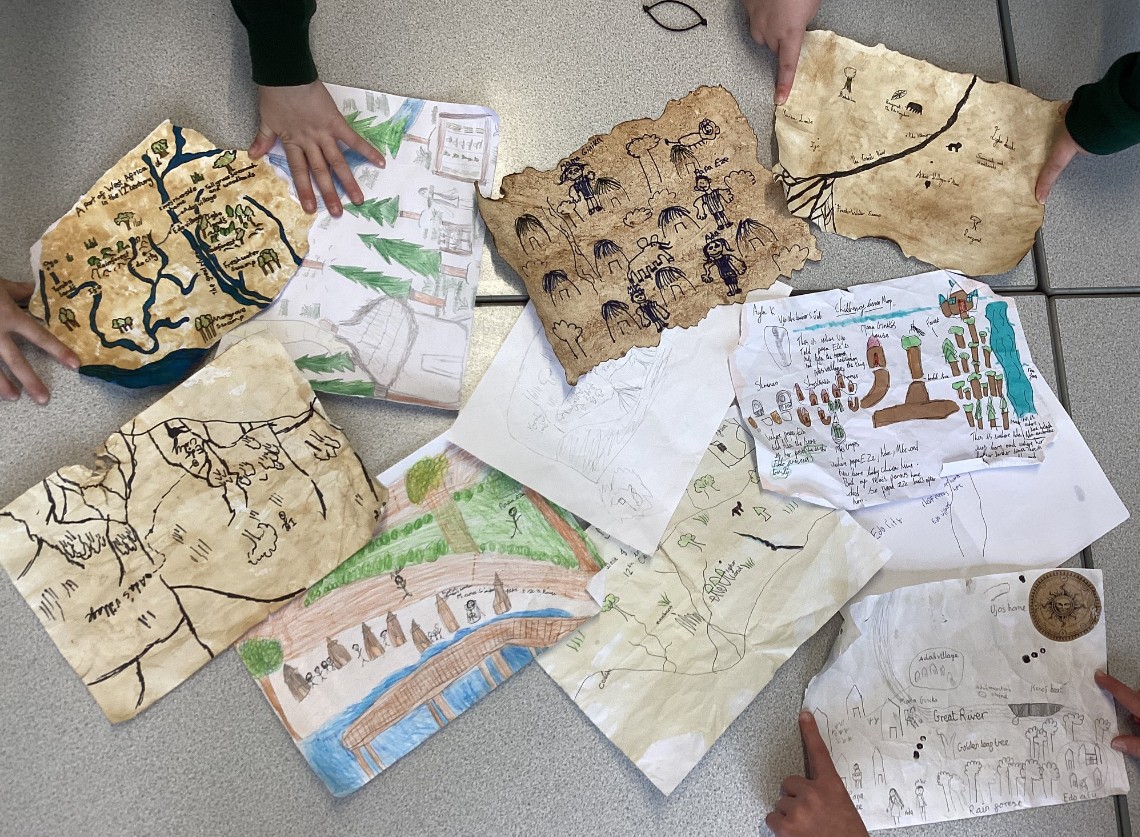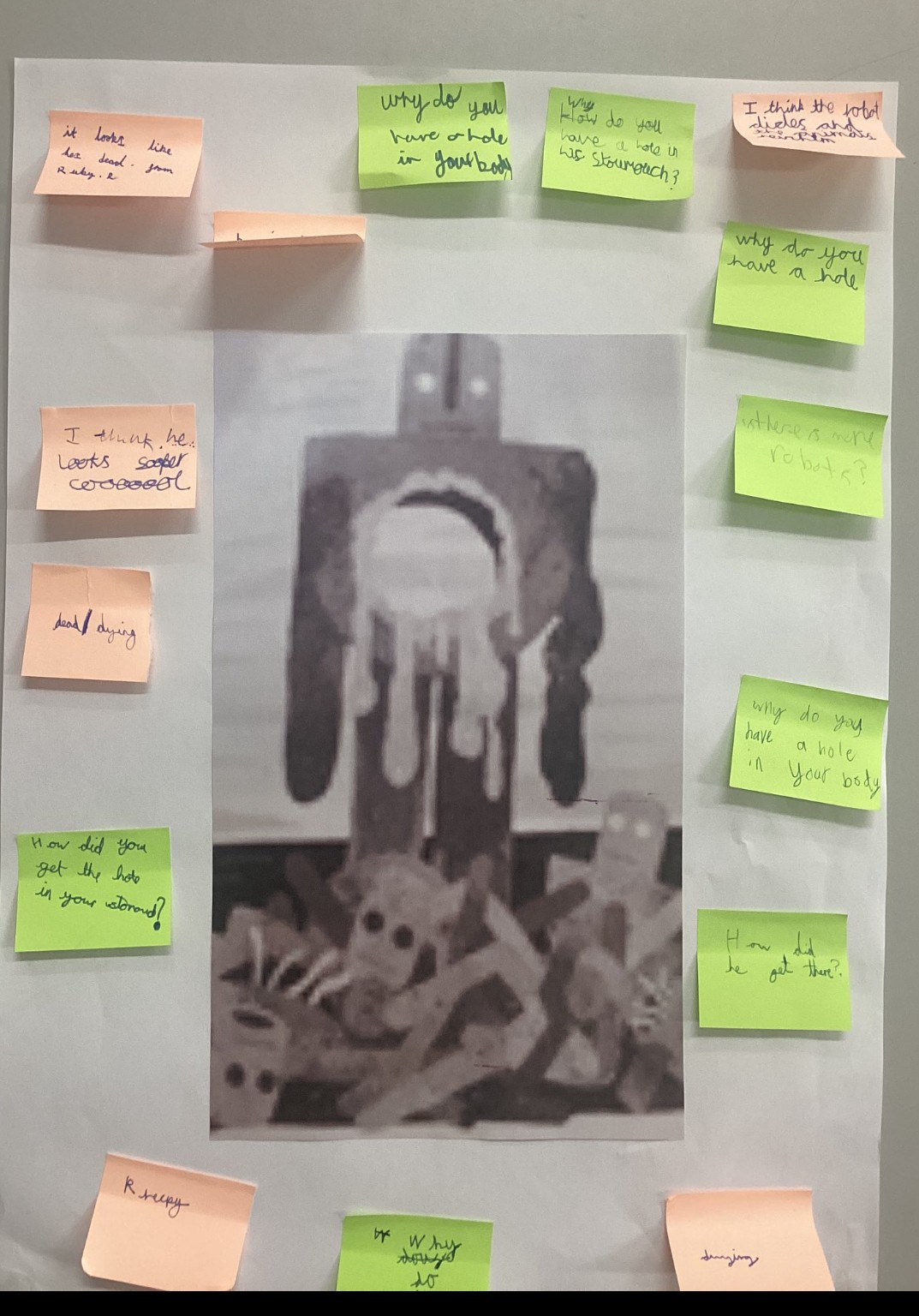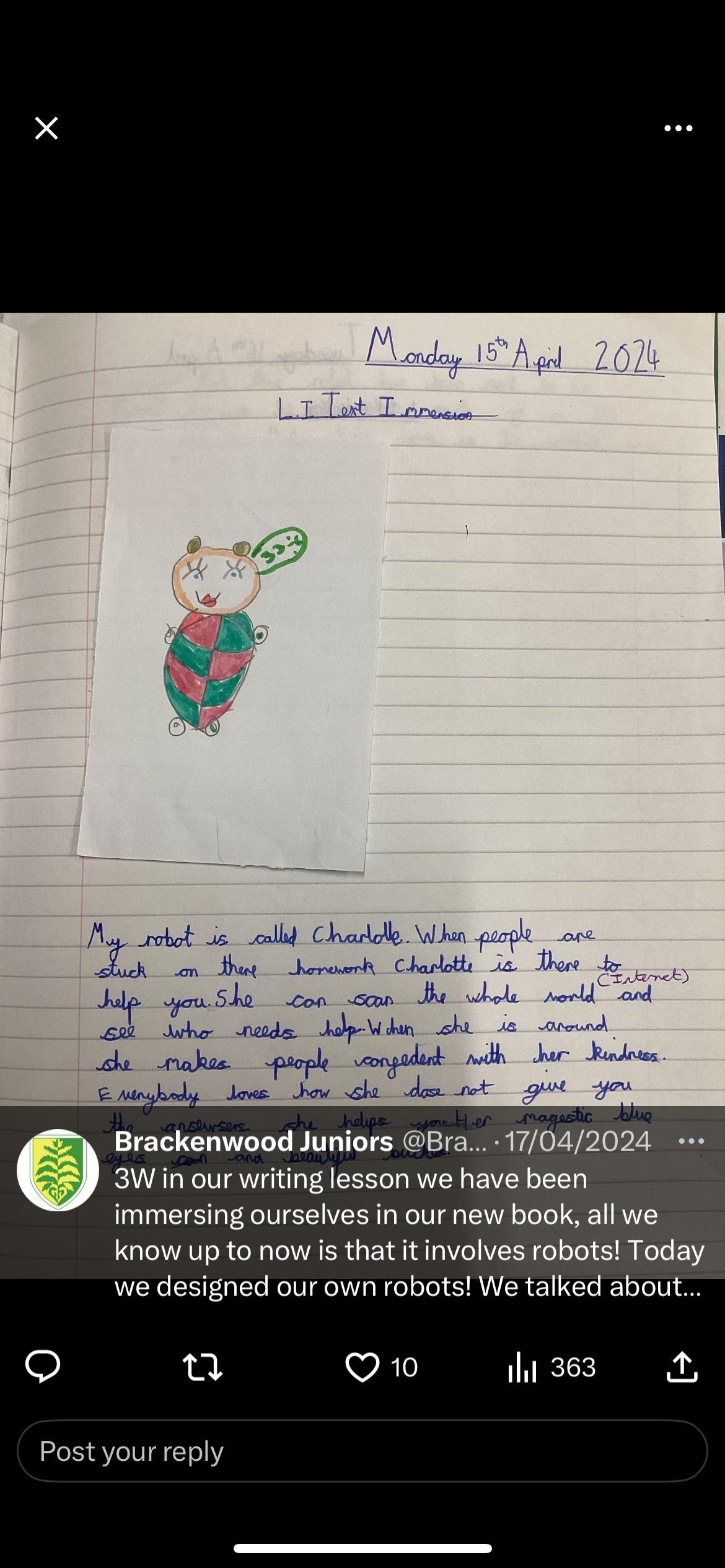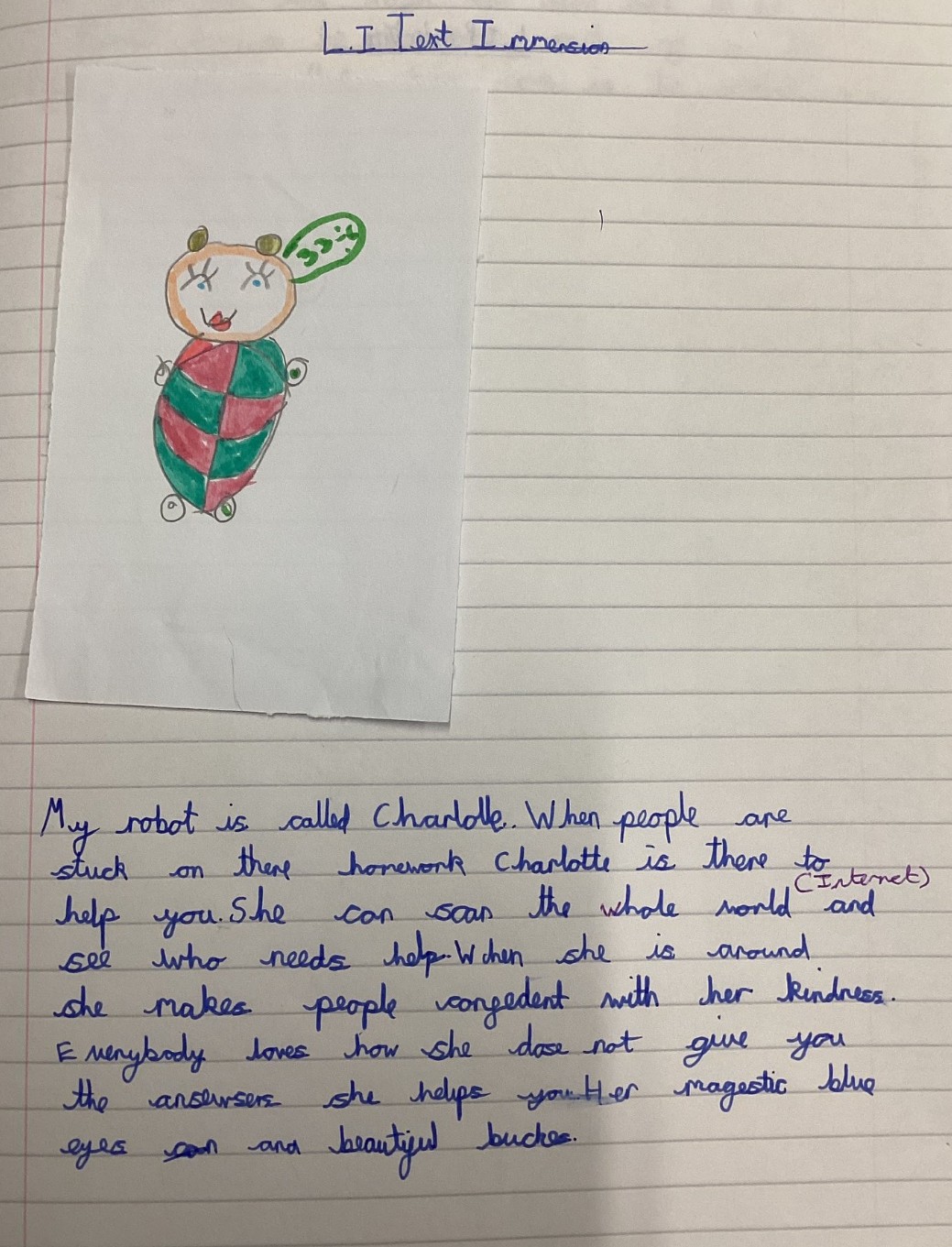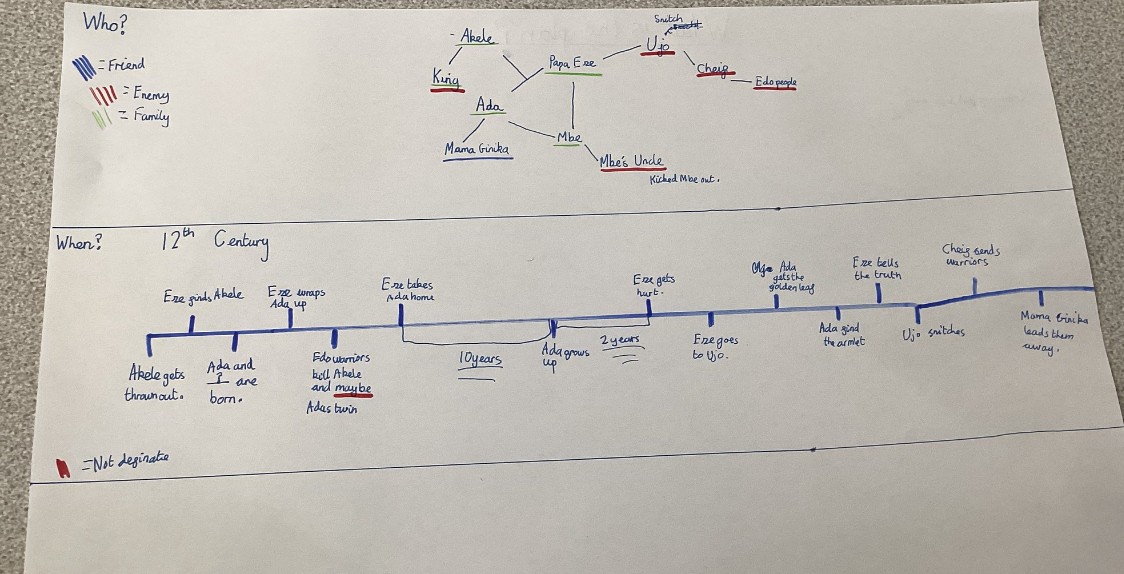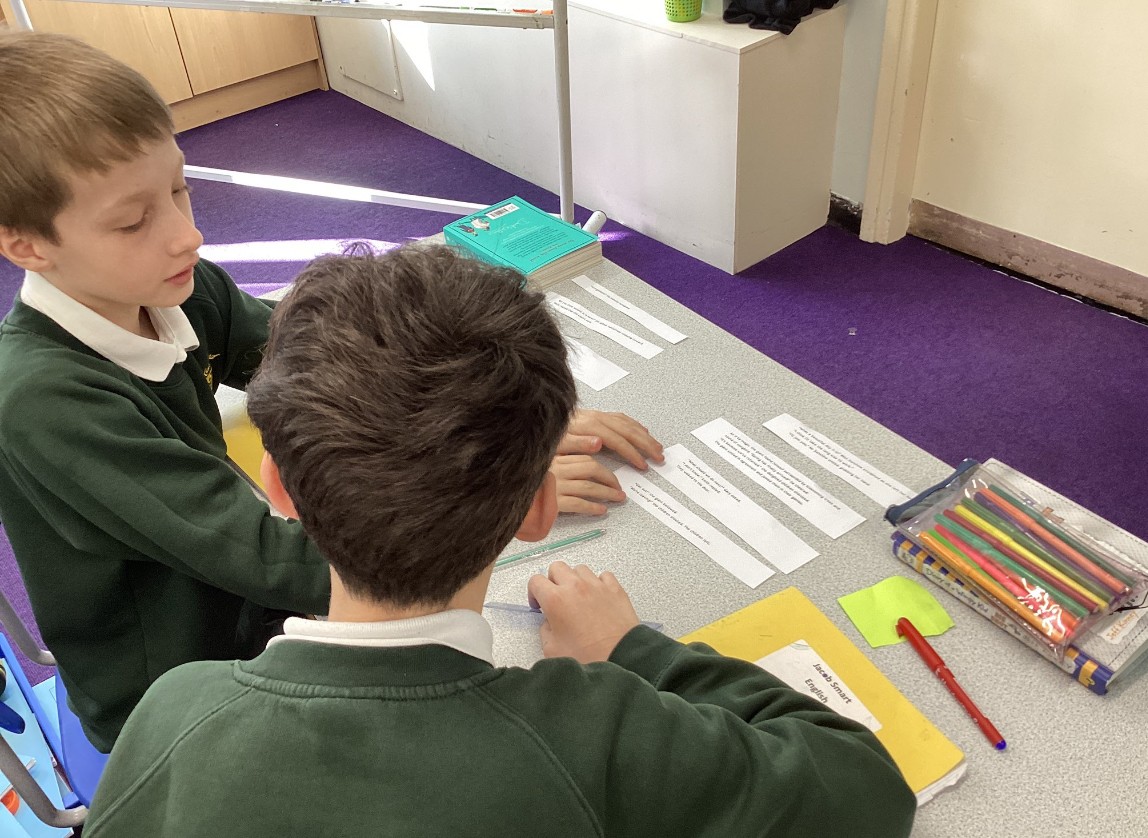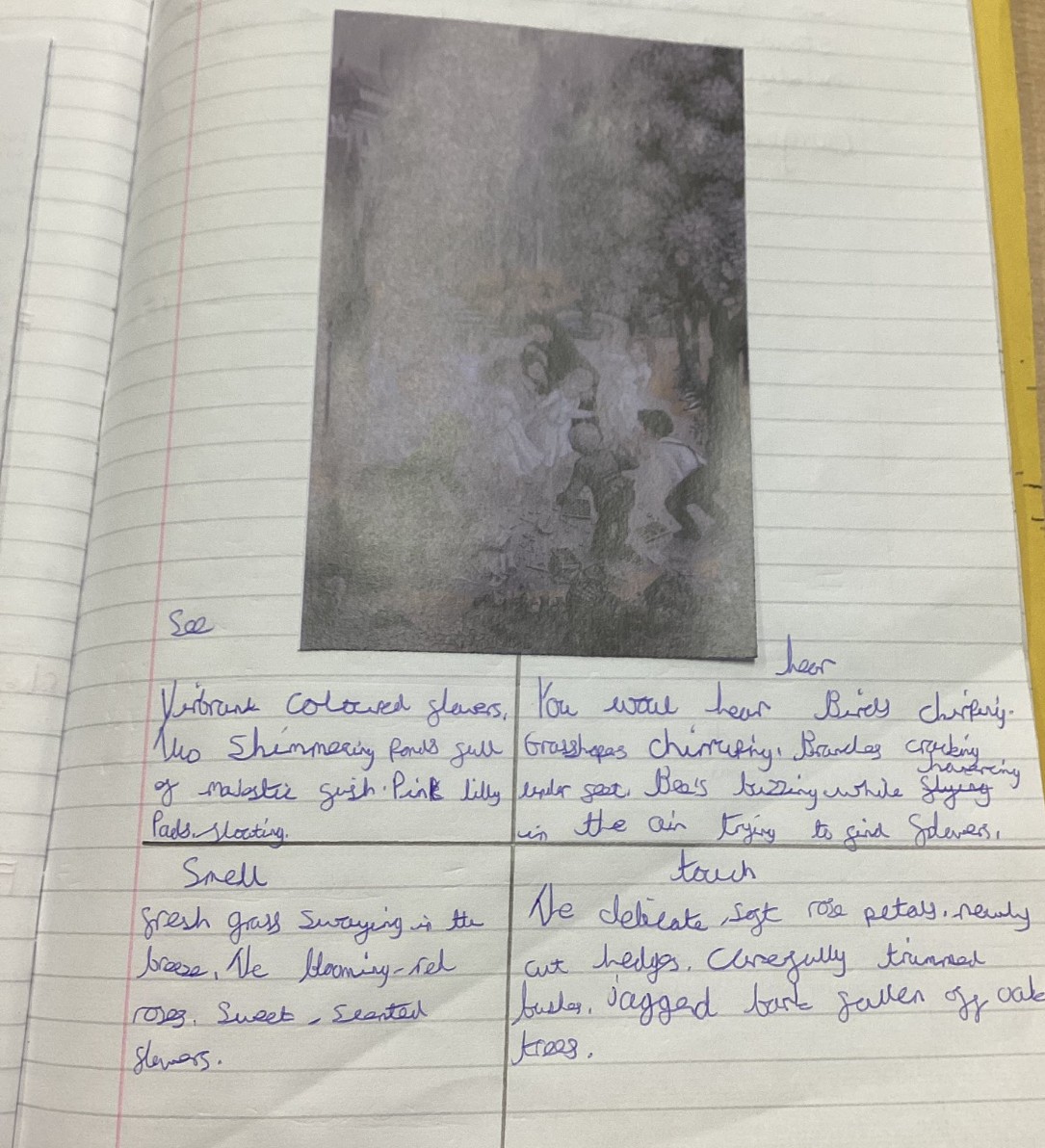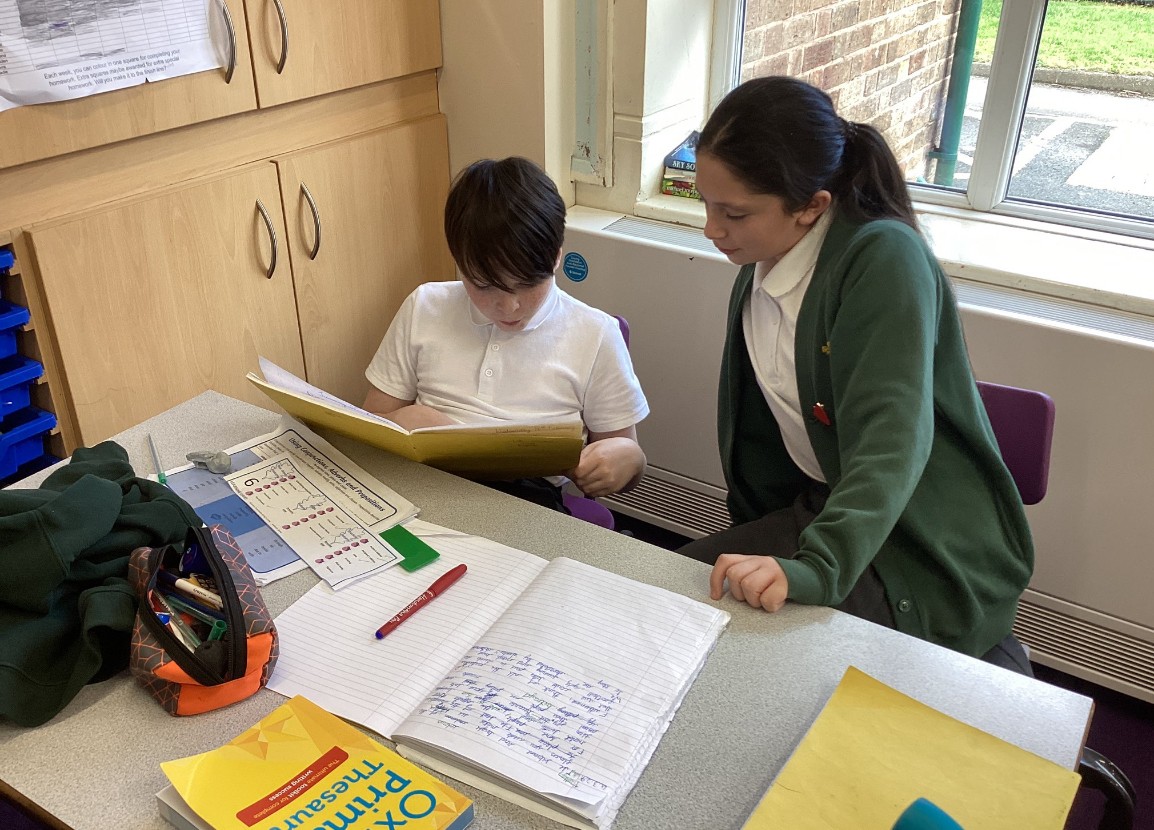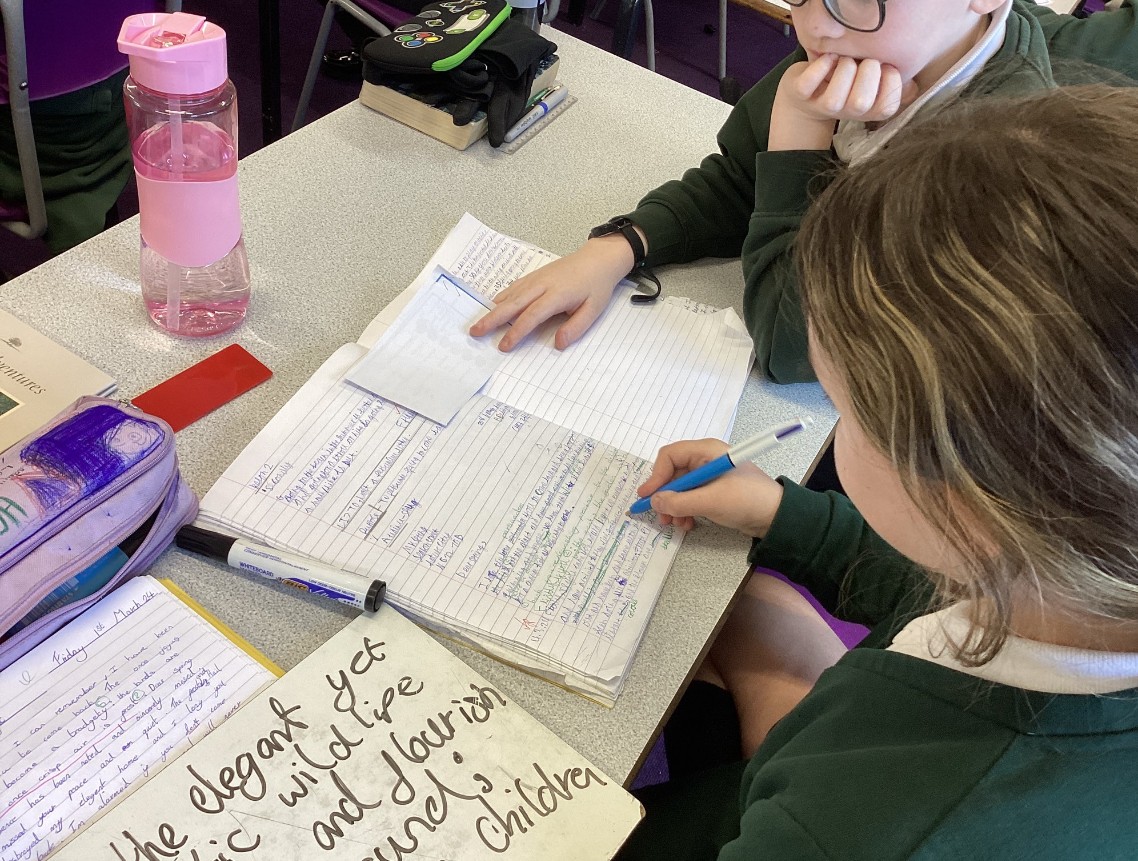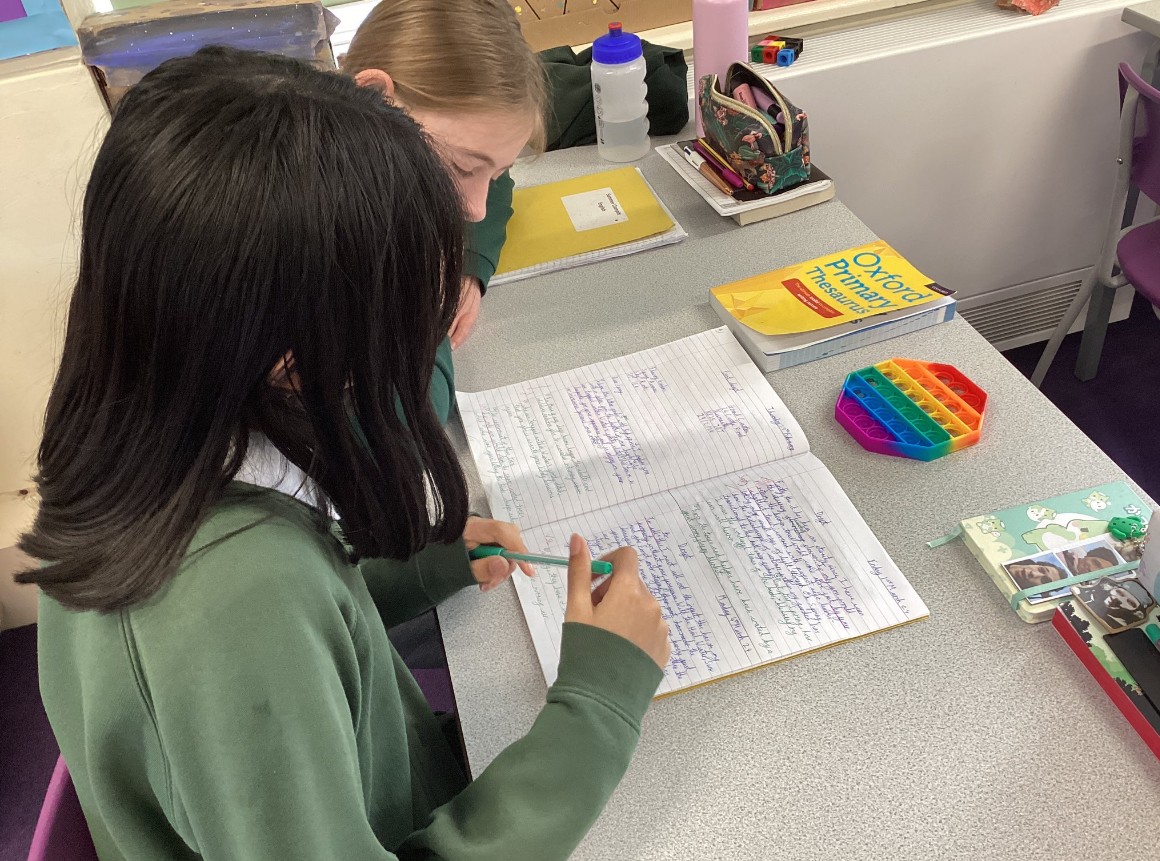Intent
At Brackenwood Junior School, we aim to cultivate a passion for writing in every pupil by providing exciting and original materials including new author texts and Grammarsaurus units. Our curriculum is designed to inspire children to become confident and enthusiastic writers. They will learn to express themselves, develop communication skills, and understand the impact of their word choices and writing styles.
Implementation
Teaching and Curriculum: Our lessons are structured to ensure pupils secure their year group knowledge while having opportunities to deepen their learning. We encourage pupils to make connections between their experiences and the world,
fostering natural curiosity and critical thinking. Teaching is active, collaborative, and cognitive.
Writing Process: Writing at Brackenwood Juniors follows a three week process, which can be extended if needed. This structured approach ensures high-quality writing and helps pupils understand how to plan and complete engaging written work. Spoken language is emphasised throughout the curriculum, enhancing vocabulary, grammar, and comprehension skills. The first week of the writing process is solely dedicated to speaking and listening activities alongside text immersion activities. Week 2 is where the children learn grammar elements linked to both year group expectations/genre-specific features and plan their writing. In week 3, the children draft, edit/up-level and publish their writing.
Language and Literacy: We prioritise high standards in language and literacy, encouraging pupils to engage in drama and role- playing to develop their spoken and written skills (week 1). Grammar and vocabulary development are integral parts of our writing process (week 2), supporting pupils' transcription and composition abilities (week 3).
Editing and Up-levelling: Pupils are taught to edit and up-level their writing to make improvements. By the end of Year 6, pupils will recognise the importance of constructive feedback and take pride in their work. They will be prepared to transition to high school and beyond with strong speaking, listening, and writing skills essential for future success.
Genres and Skills: Throughout the year, pupils will explore a variety of fiction and non-fiction genres, preparing them for future academic challenges and real-life applications. Our curriculum equips pupils with essential skills for future job roles, including effective communication, grammar usage, handwriting, spelling, debating, and idea organisation.

